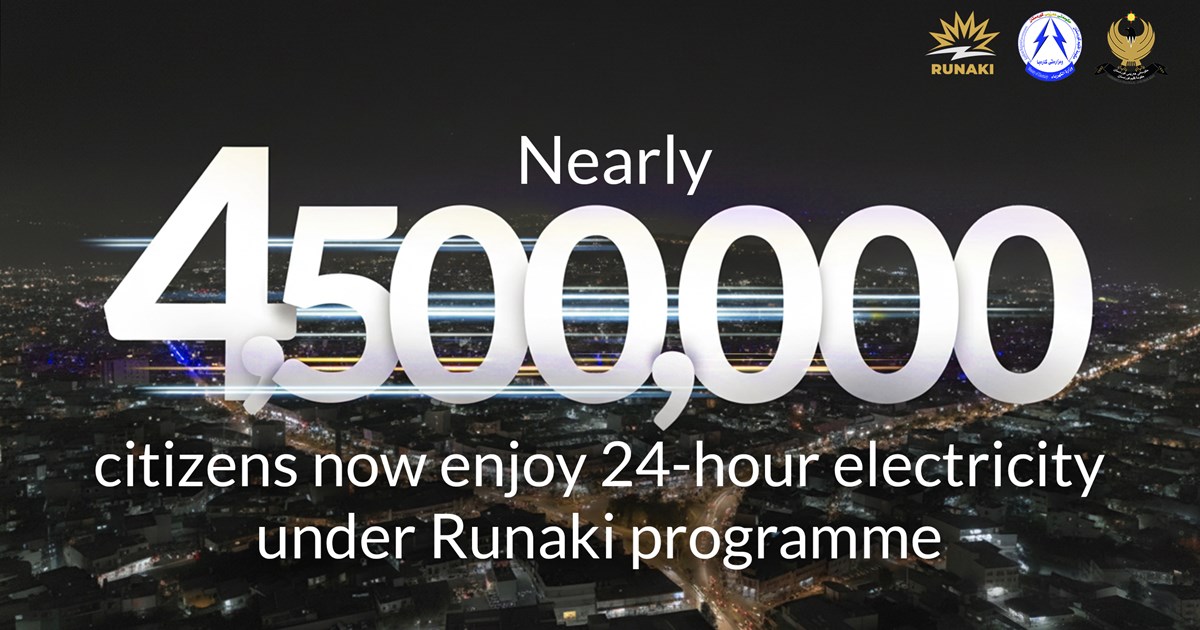Nearly 4.5 million citizens now enjoy 24-hour electricity through Runaki programme

Erbil, Kurdistan Region (GOV.KRD) – The Ministry of Electricity is pleased to announce today that nearly 4.5 million citizens, or nearly 70% of the Kurdistan Region population, now have access to 24-hour electricity under the Runaki programme.
This brings 24-hour electricity to the city centres of Soran and Zakho, and Raparin is being prepared to join Runaki soon.
Last month Halabja became the first governorate of Iraq and Kurdistan Region to fully join Runaki.
Table 1: breakdown of the latest number of citizens and subscribers under Runaki
|
Number of subscribers |
Number of citizens |
City |
|
504,000 |
1,935,000 |
Erbil |
|
351,000 |
1,345,000 |
Slemani |
|
134,000 |
495,000 |
Duhok |
|
38,000 |
135,000 |
Halabja |
|
39,000 |
144,000 |
Soran |
|
65,000 |
238,000 |
Zakho |
|
1,131,000 |
4,292,000 |
Total |
Nearly 3,700 neighbourhood diesel generators, or more than 50% of Kurdistan’s total, have now been phased out. The Kurdistan Regional Government (KRG) plans to phase out over 7,000 generators by the end of 2026.
Table 2: the latest number of neighbourhood diesel generators phased out under Runaki
|
City |
Number of neighbourhood diesel generators phased out |
Estimated annual CO2 emissions reductions (tonnes) |
|
Erbil |
2,197 |
410,000 |
|
Slemani |
604 |
112,000 |
|
Duhok |
379 |
70,000 |
|
Halabja |
65 |
15,000 |
|
Soran |
127 |
23,000 |
|
Zakho |
317 |
60,000 |
|
Total |
3,689 |
690,000 |
The KRG previously announced that subscribers under the Runaki programme saw record-low bills in August. This is due to the KRG’s new progressive tariff designed to protect low-income households and encourage responsible consumption. Under the new Runaki tariffs, 80% of citizens pay less than the previous cost of neighbourhood diesel generators and the national grid combined.
Prime Minister Masrour Barzani announced the Runaki programme in October 2024 to deliver 24-hour electricity to every home and business by the end of 2026. The KRG Council of Ministers unanimously approved the national programme in May.
